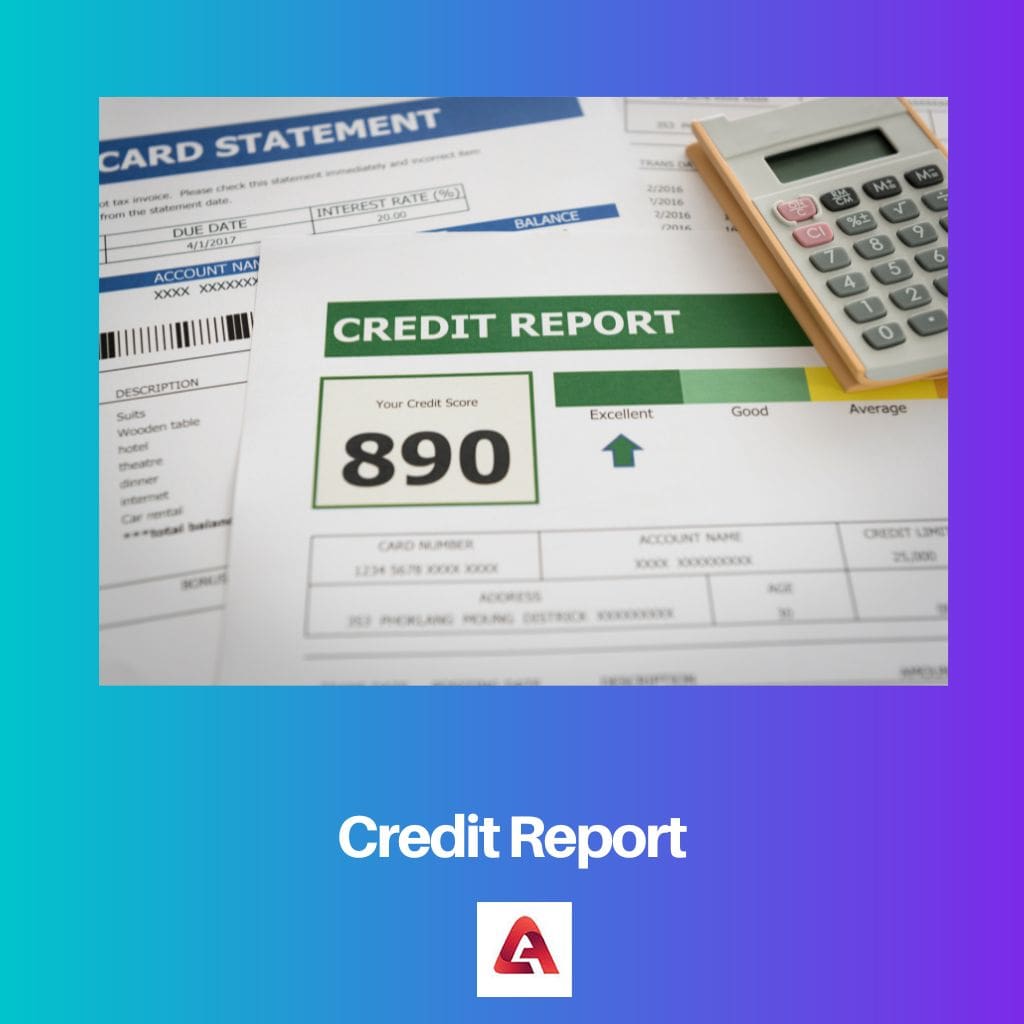A credit Report is an individual’s record of repaying debt and history management. Usually, companies and lenders use this report to decide whether they will do business with you. They also use this report to verify a person’s identity, calculate their credit score, etc.
The Credit Bureau makes these reports. This report also includes information about your current debts, the previous record of when and how you paid your bills, and the period you managed your credit accounts.
Credit Reports provide insight into the credit companies and lenders about how you are managing your borrowings and credit repayments in the past. This will help the lenders decide whether they will grant you the loan.
Equifax, TransUnion and Experian are the three top Credit Bureaus in the United States. They provide a free Credit Report to the customers once a year.

Key Takeaways
- A credit report is a detailed summary of an individual’s credit history, including credit accounts, payment history, and outstanding debts.
- Credit reports are used by lenders, employers, landlords, and other entities to assess an individual’s creditworthiness.
- Credit reports help individuals monitor their credit scores and detect errors or fraud.
Credit Report Sections
The National Credit Bureaus store Credit Reports in an electronic file format. It is a presentation of the stored data of the individuals. The information stored in different credit bureaus is the same. However, each bureau has its way of formatting and storing the credit report data.
Let’s talk about how Experian presents its credit report.
There are four categories in which they divide their report; Personal Information, Accounts, Inquires and Public Records.
Personal Information
This section consists of the following:
- A person’s full name. It also includes multiple variations that a person could have used while he/she was applying for credit (surname change after divorce or marriage, full name including middle name or initials or vice versa).
- Current address or the address provided while opening the credit accounts.
- Credit took in a partnership with another person in the past.
- Past and current employees’ names
Accounts
This section consists of the following:
- Record of all credit card accounts and open loans. Information on monthly credit payments of all the accounts for the past 7 years includes details about whether the payments were initiated before or after the due date. The late repayments will be shown in the reports, including the days the person took to pay the bill after the due date was passed.
- Closed credit card accounts that are closed either by the issuer or the card user and other accounts, which include information on past paid-off loans. For 10 years, the details about these accounts will be shown on the credit reports even if they are closed, and the payment history will be visible for 7 years.
Inquires
This section consists of the record of company requests for a person’s credit score or credit report. This information will be available for up to 2 years on the credit report. The inquiries section has two sub-sections; Soft inquiries and Hard inquiries.
- Soft Inquiries are requested when this report is used to check their credit or credit pre-qualification.
- Hard Inquiries occur to check credit regarding applications regarding new credit.
Public Records
This section consists of details if the person has filed for bankruptcy. The filing details and its opening & closing status will be visible in the credit report for up to 10 years.